Betriebliche Dynamiken und Beschäftigungsergebnisse
Firmengründungen und -schließungen sind in einer Marktwirtschaft für die Reallokation von Ressourcen, strukturellen Wandel und damit für die wirtschaftliche Entwicklung von zentraler Bedeutung und spielen vor allem im Hinblick auf die wirtschaftliche Transformation Ostdeutschlands eine zentrale Rolle. Gleichzeitig können die mit dem Strukturwandel verbundenen Arbeitsplatzverluste dramatische Folgen für betroffene Arbeitnehmer haben, wie z.B. Arbeitslosigkeit, Einkommensverluste oder eine geringere Arbeitsplatzqualität. Diese Forschungsgruppe untersucht mithilfe mikroökonometrischer Methoden Gründungen, Wachstumsprozesse und das Scheitern von Unternehmen, die Anzahl und Qualität der von Neugründungen geschaffenen Arbeitsplätze und die Folgen von Firmenschließungen für betroffene Arbeitnehmer und Arbeitnehmerinnen, vor allem in Bezug auf Arbeitsmarktergebnisse wie Beschäftigung und Löhne.
Forschungscluster
Produktivität und InstitutionenIhr Kontakt

Mitglied - Abteilung Strukturwandel und Produktivität
PROJEKTE
01.2020 ‐ 06.2024
Europas populistische Parteien im Aufwind: die dunkle Seite von Globalisierung und technologischem Wandel?
VolkswagenStiftung
Die Globalisierung hat zwar allgemein den Wohlstand gesteigert, aber in vielen Regionen Europas auch zu Arbeitslosigkeit, Lohnungleichheit, Abwanderung und Überalterung geführt. Das Projekt untersucht, ob diese ökonomischen Lasten zu Wählerstimmen für populistische Parteien führen.
01.2019 ‐ 06.2022
MICROPROD („Raising EU Productivity: Lessons from Improved Micro Data“)
Europäische Kommission
Ziel von MICROPROD ist es, zu einem besseren Verständnis der Herausforderungen beizutragen, die die vierte industrielle Revolution in Europa mit sich bringt. Verliert das Produktivitätswachstum im Kontext von Globalisierung und Digitalisierung an Schwung, und wenn ja, warum?
This project has received funding from the European Union’s Horizon 2020 research and innovation programme under grant agreement No 764810.
07.2018 ‐ 12.2020
Firmenlohndifferentiale in unvollkommenen Arbeitsmärkten: Die Rolle von Marktmacht und industriellen Beziehungen in der Aufteilung der Beschäftigungsrenten zwischen Arbeitnehmern und Arbeitgebern
Deutsche Forschungsgemeinschaft (DFG)
Ziel dieses Projekts ist es, die Aufteilung der Beschäftigungsrenten auf unvollkommenen Arbeitsmärkten und den Einfluss von Arbeitsmarktinstitutionen wie Tarifbindung und betrieblicher Mitbestimmung auf Firmenlohndifferentiale zu untersuchen. Über die Grundlagenforschung hinaus hat das Projekt damit Potential, wichtige wirtschaftspolitische Debatten zur institutionellen Ausgestaltung des Lohnfindungsprozesses zu informieren.
02.2019 ‐ 09.2019
Auswertung des IAB-Betriebspanels 2018 und Erstellung eines Ergebnisberichts für West- und Ostdeutschland
04.2016 ‐ 03.2019
Lohn- und Beschäftigungseffekte von Insolvenzen
Deutsche Forschungsgemeinschaft (DFG)
Ziel des Projekts ist es, erstmals den Prozess und die Folgen des Scheiterns von Unternehmen ausführlich zu analysieren. Insbesondere ist es im Rahmen dieses Projekts erstmals möglich, die Folgen kleinbetrieblicher Insolvenzen zu erforschen, was vor allem deshalb relevant ist, weil Arbeitnehmer in Betrieben mit weniger als zehn Beschäftigten etwa viermal so häufig von Insolvenzen betroffen sind wie Arbeitnehmer in Großbetrieben.
01.2018 ‐ 12.2018
Auswertung des IAB-Betriebspanels 2017 und Erstellung eines Ergebnisberichts für West- und Ostdeutschland
01.2017 ‐ 09.2017
Auswertung des IAB-Betriebspanels 2016 und Erstellung eines Ergebnisberichts für West- und Ostdeutschland
Referierte Publikationen
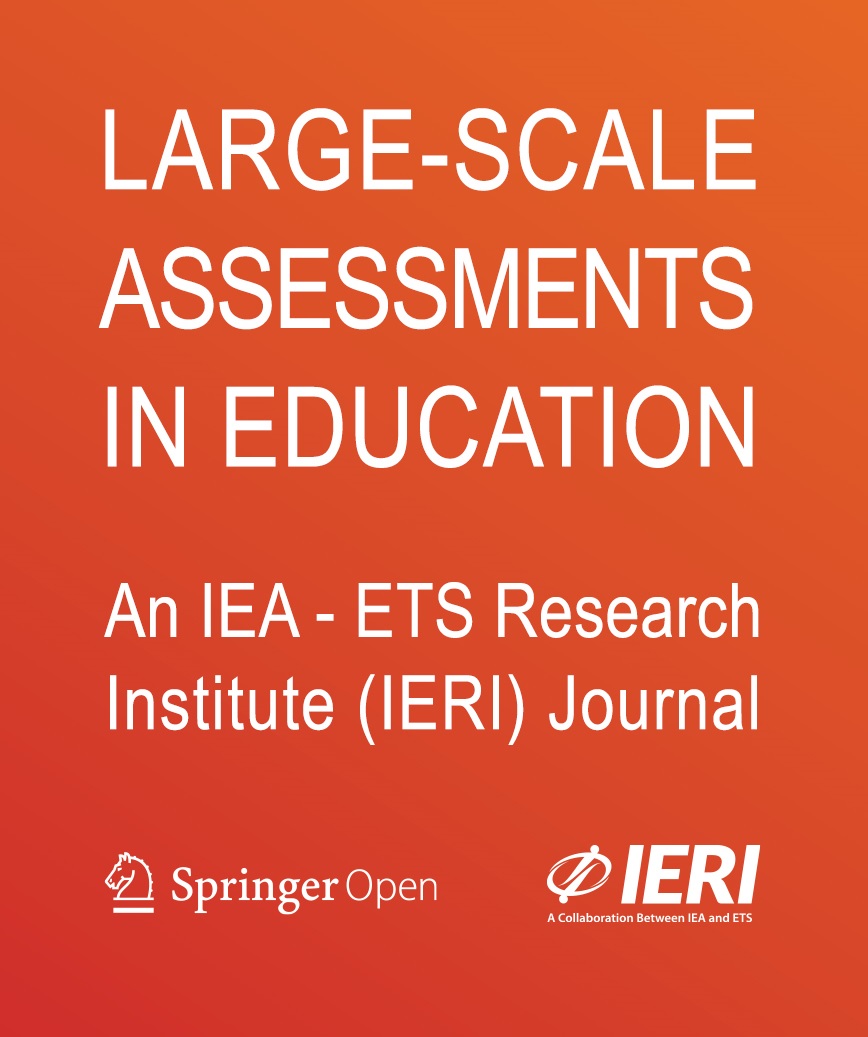
Skills, Earnings, and Employment: Exploring Causality in the Estimation of Returns to Skills
in: Large-scale Assessments in Education, Nr. 12, 2017
Abstract
Ample evidence indicates that a person’s human capital is important for success on the labor market in terms of both wages and employment prospects. However, unlike the efforts to identify the impact of school attainment on labor-market outcomes, the literature on returns to cognitive skills has not yet provided convincing evidence that the estimated returns can be causally interpreted. Using the PIAAC Survey of Adult Skills, this paper explores several approaches that aim to address potential threats to causal identification of returns to skills, in terms of both higher wages and better employment chances. We address measurement error by exploiting the fact that PIAAC measures skills in several domains. Furthermore, we estimate instrumental-variable models that use skill variation stemming from school attainment and parental education to circumvent reverse causation. Results show a strikingly similar pattern across the diverse set of countries in our sample. In fact, the instrumental-variable estimates are consistently larger than those found in standard least-squares estimations. The same is true in two “natural experiments,” one of which exploits variation in skills from changes in compulsory-schooling laws across U.S. states. The other one identifies technologically induced variation in broadband Internet availability that gives rise to variation in ICT skills across German municipalities. Together, the results suggest that least-squares estimates may provide a lower bound of the true returns to skills in the labor market.
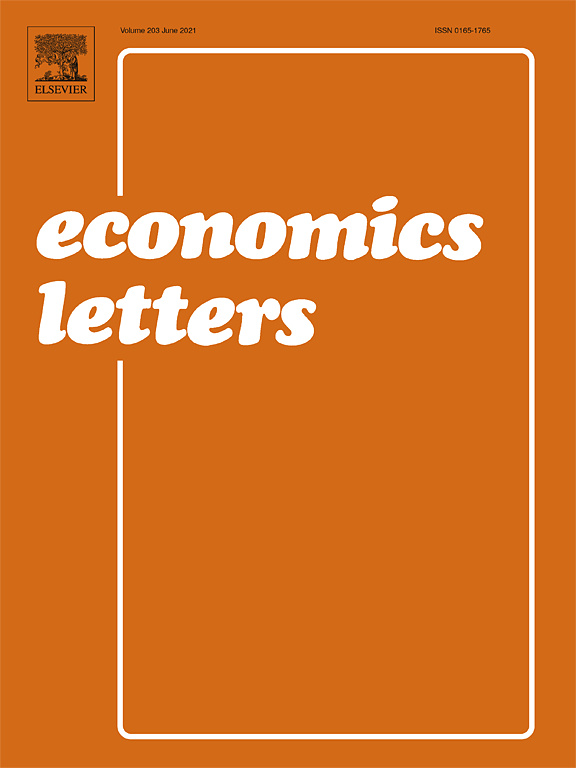
Coping with Change: International Differences in the Returns to Skills
in: Economics Letters, April 2017
Abstract
International data from the PIAAC survey allow estimation of comparable labor-market returns to skills for 32 countries. Returns to skills are larger in faster growing economies, consistent with the hypothesis that skills are particularly important for adaptation to economic change.
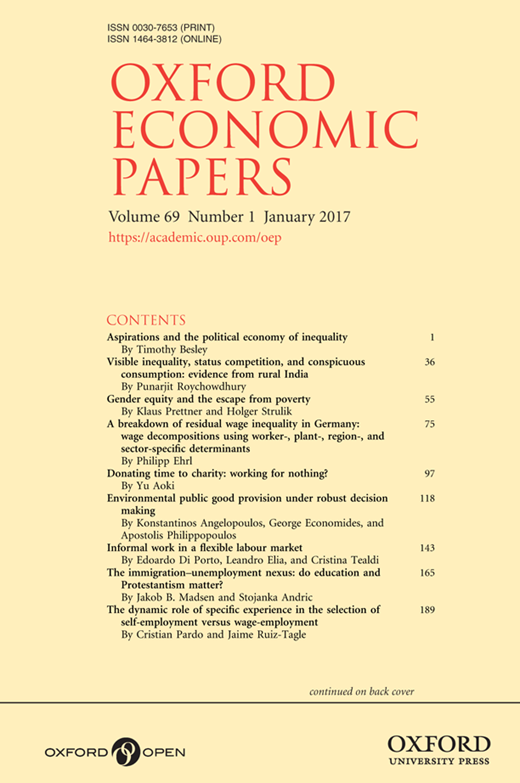
Paternal Unemployment During Childhood: Causal Effects on Youth Worklessness and Educational Attainment
in: Oxford Economic Papers, Nr. 1, 2017
Abstract
Using long-running data from the German Socio-Economic Panel (1984–2012), we investigate the impact of paternal unemployment on child labour market and education outcomes. We first describe correlation patterns and then use sibling fixed effects and the Gottschalk (1996) method to identify the causal effects of paternal unemployment. We find different patterns for sons and daughters. Paternal unemployment does not seem to causally affect the outcomes of sons. In contrast, it increases both daughters’ worklessness and educational attainment. We test the robustness of the results and explore potential explanations.
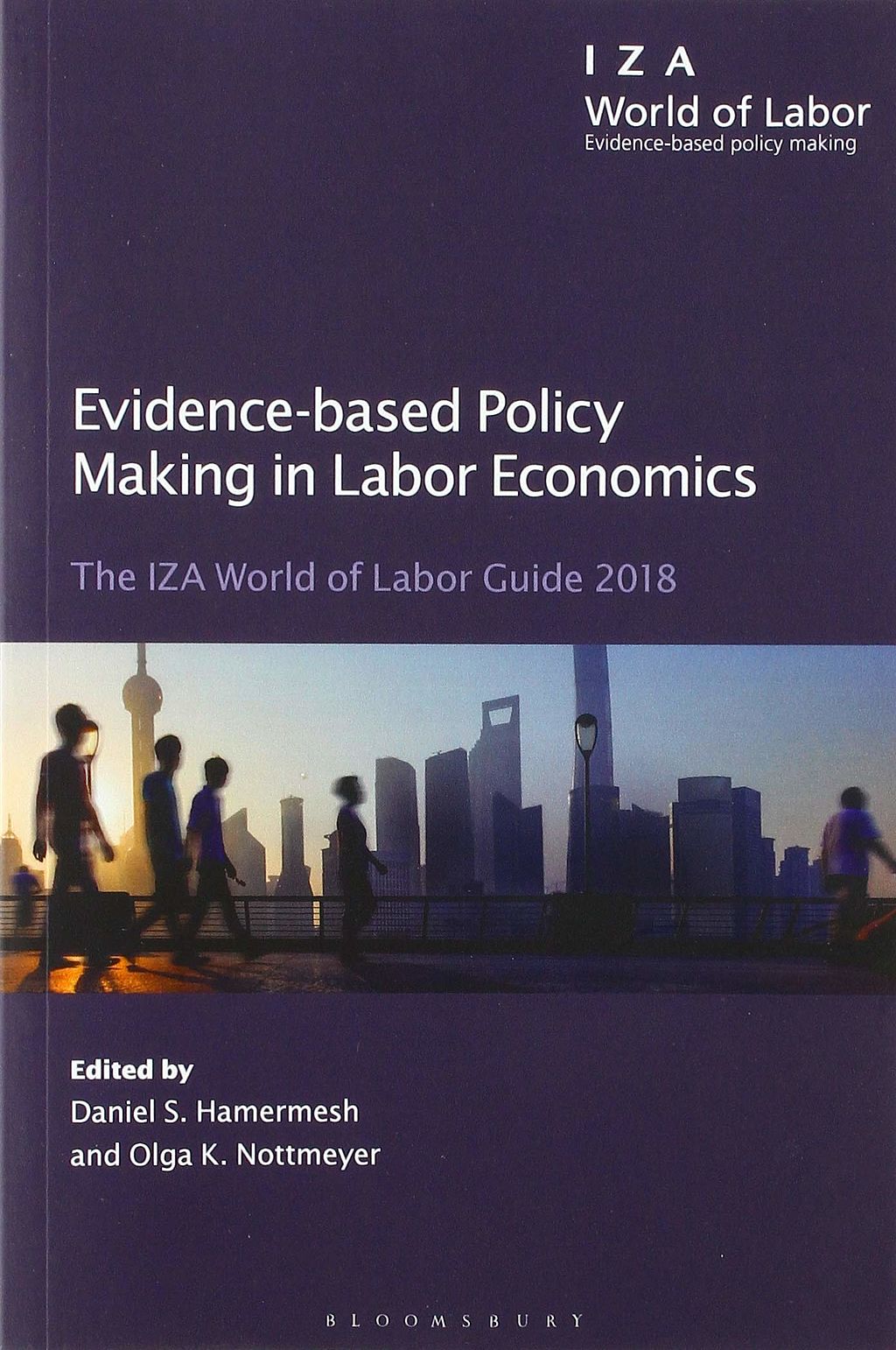
Gender Wage Discrimination: Does the Extent of Competition in Labor Markets Explain why Female Workers are Paid Less than Men?
in: IZA World of Labor, Nr. 310, 2016
Abstract
There are pronounced and persistent wage differences between men and women in all parts of the world. A significant element of these wage disparities can be attributed to differences in worker and workplace characteristics, which are likely to mirror differences in worker productivity. However, a large part of these differences remains unexplained, and it is common to attribute them to discrimination by the employer that is rooted in prejudice against female workers. Yet recent empirical evidence suggests that, to a large extent, the gaps reflect “monopsonistic” wage discrimination—that is, employers exploiting their wage-setting power over women—rather than any sort of prejudice.
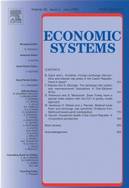
FDI, Human Capital and Income Convergence — Evidence for European Regions
in: Economic Systems, Nr. 2, 2016
Abstract
This study examines income convergence in regional GDP per capita for a sample of 269 regions within the European Union (EU) between 2003 and 2010. We use an endogenous broad capital model based on foreign direct investment (FDI) induced agglomeration economies and human capital. By applying a Markov chain approach to a new dataset that exploits micro-aggregated sub-national FDI statistics, the analysis provides insights into regional income growth dynamics within the EU. Our results indicate a weak process of overall income convergence across EU regions. This does not apply to the dynamics within Central and East European countries (CEECs), where we find indications of a poverty trap. In contrast to FDI, regional human capital seems to be associated with higher income levels. However, we identify a positive interaction of FDI and human capital in their relation with income growth dynamics.
Arbeitspapiere
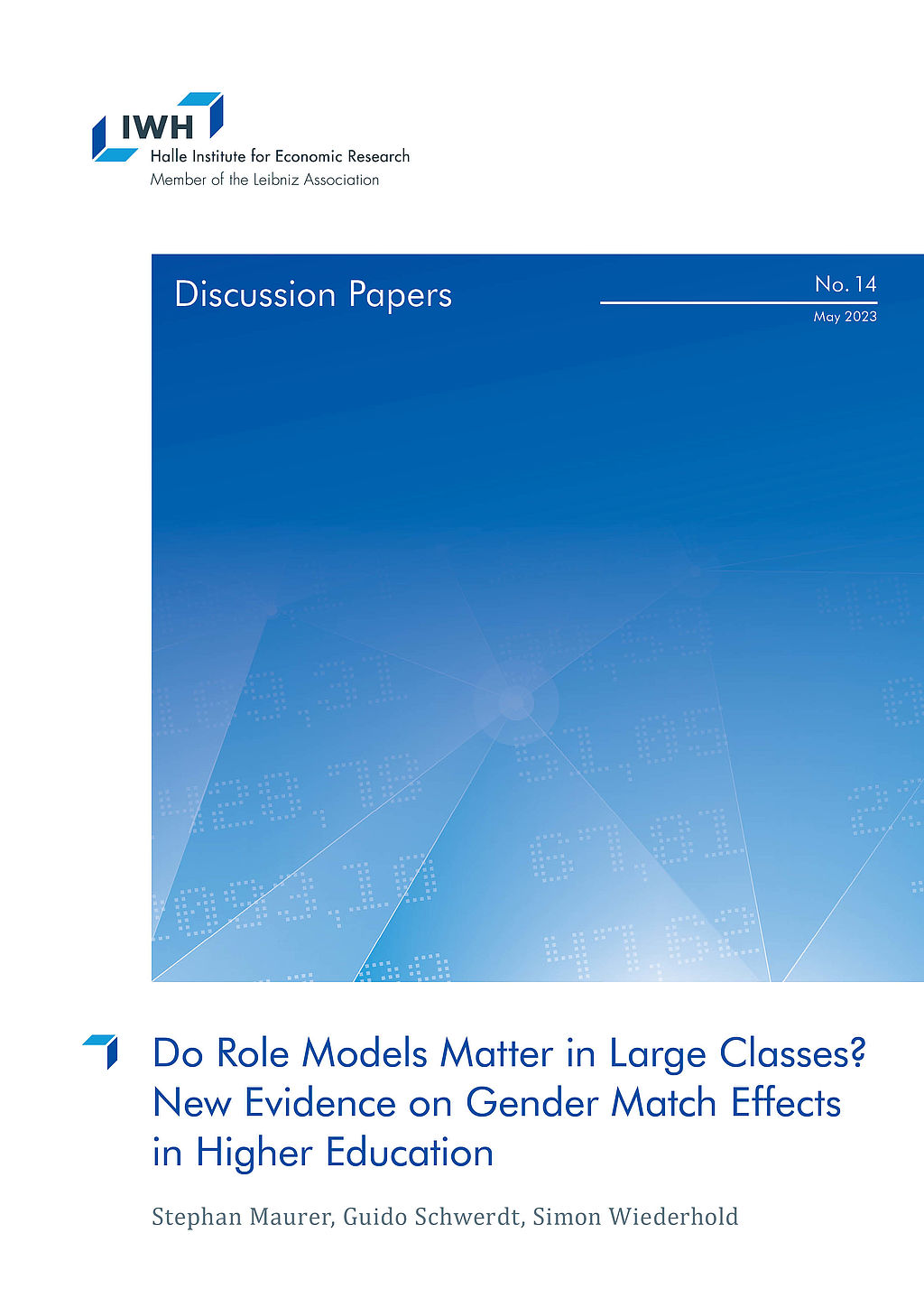
Do Role Models Matter in Large Classes? New Evidence on Gender Match Effects in Higher Education
in: IWH Discussion Papers, Nr. 14, 2023
Abstract
It is well established that female students perform better when taught by female professors. However, little is known about the mechanisms explaining these gender match effects. Using administrative records from a German public university, which cover all programs and courses between 2006 and 2018, we show that gender match effects are sizable in smaller classes, but are absent in larger classes. These results suggest that direct and frequent interactions between students and professors are crucial for gender match effects to emerge. In contrast, the mere fact that one’s professor is female is not sufficient to increase performance of female students.
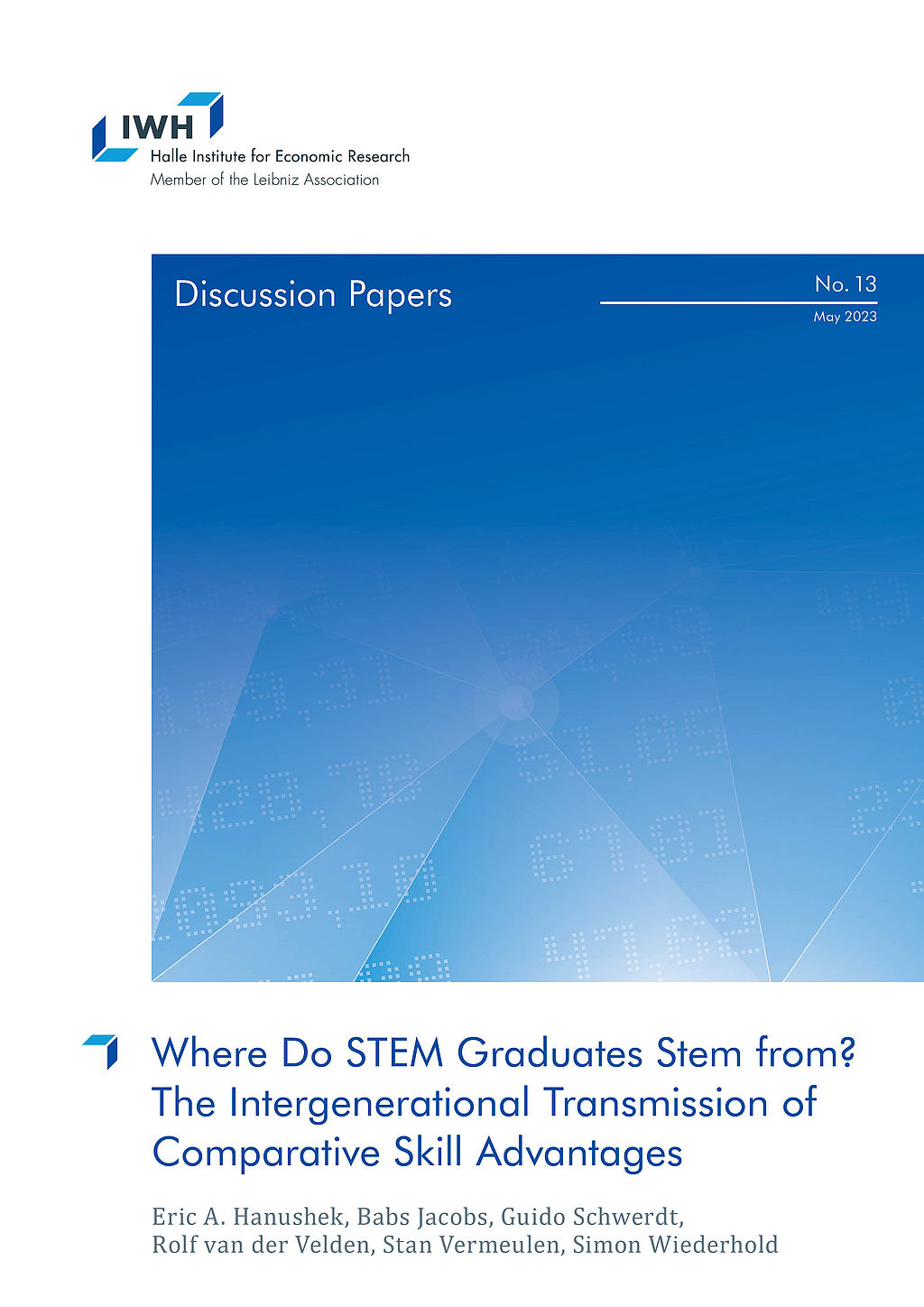
Where Do STEM Graduates Stem from? The Intergenerational Transmission of Comparative Skill Advantages
in: IWH Discussion Papers, Nr. 13, 2023
Abstract
The standard economic model of occupational choice following a basic Roy model emphasizes individual selection and comparative advantage, but the sources of comparative advantage are not well understood. We employ a unique combination of Dutch survey and registry data that links math and language skills across generations and permits analysis of the intergenerational transmission of comparative skill advantages. Exploiting within-family between-subject variation in skills, we show that comparative advantages in math of parents are significantly linked to those of their children. A causal interpretation follows from a novel IV estimation that isolates variation in parent skill advantages due to their teacher and classroom peer quality. Finally, we show the strong influence of family skill transmission on children’s choices of STEM fields.
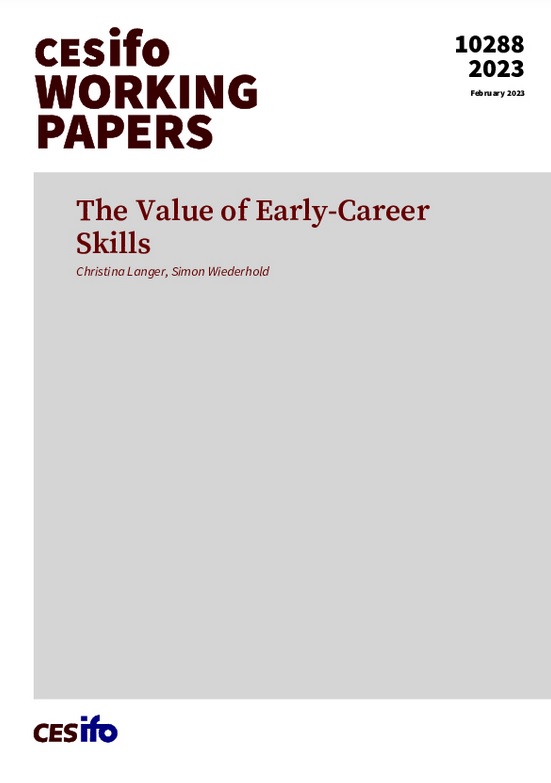
The Value of Early-Career Skills
in: CESifo Working Paper, Nr. 10288, 2023
Abstract
We develop novel measures of early-career skills that are more detailed, comprehensive, and labor-market-relevant than existing skill proxies. We exploit that skill requirements of apprenticeships in Germany are codified in state-approved, nationally standardized apprenticeship plans. These plans provide more than 13,000 different skills and the exact duration of learning each skill. Following workers over their careers in administrative data, we find that cognitive, social, and digital skills acquired during apprenticeship are highly – yet differently – rewarded. We also document rising returns to digital and social skills since the 1990s, with a more moderate increase in returns to cognitive skills.
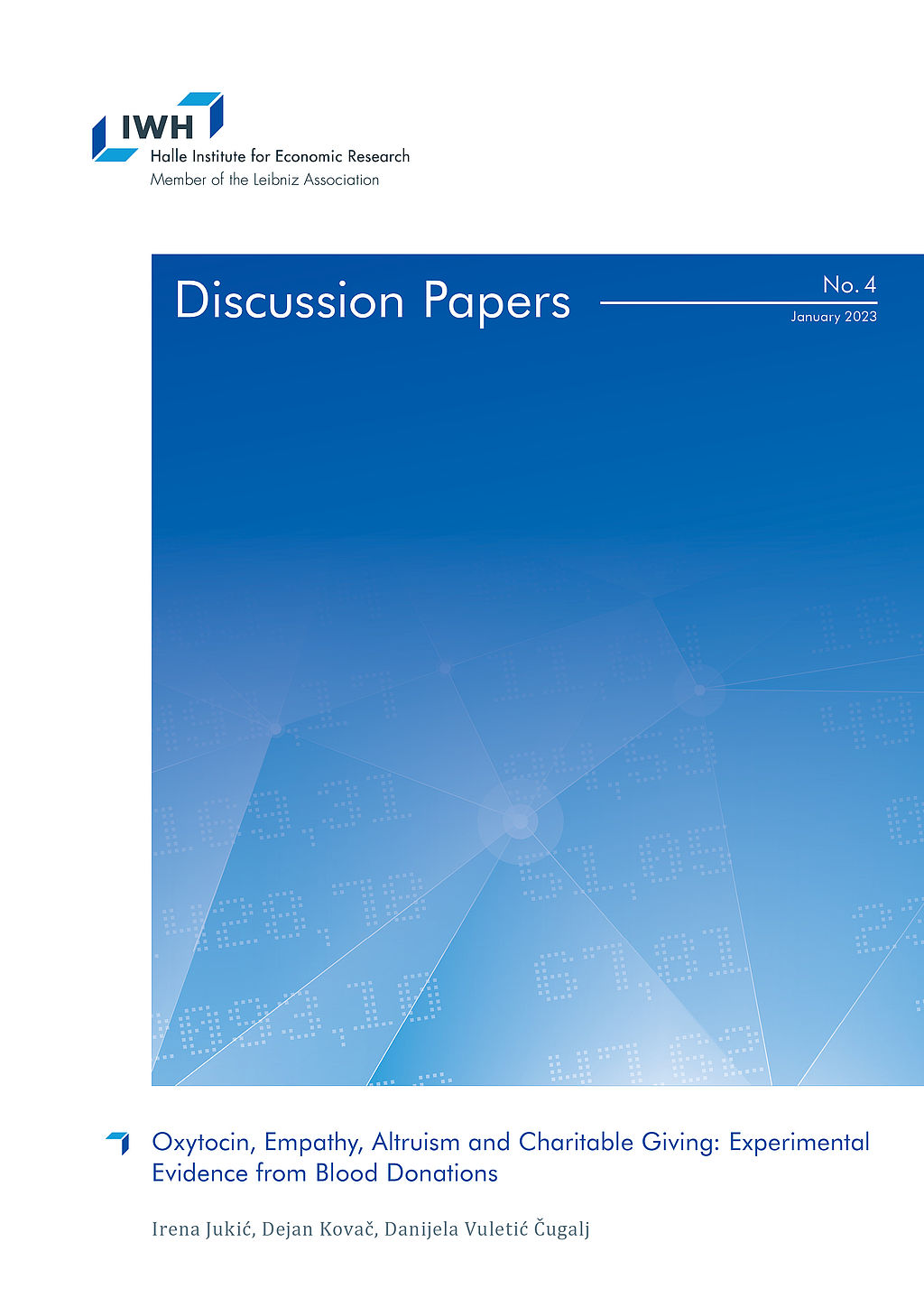
Oxytocin, Empathy, Altruism and Charitable Giving: Experimental Evidence from Blood Donations
in: IWH Discussion Papers, Nr. 4, 2023
Abstract
We conducted a field experiment in the natural setting of blood donations to test how oxytocin relates to empathy and altruism. We randomly assigned blood donors in the Croatian Institute for Transfusion Medicine to three groups with the aim to induce different levels of empathy by showing a neutral video to the donors from the control group and an emotional to the donors from the first and second treatment groups. In addition to watching the emotional video, donors from the second treatment group are given a gift which relates to the emotional story from the video. We find no effect of our treatment on induced levels of oxytocin. Null effects of our treatments could be explained by the above average baseline levels of oxytocin and inability of our treatments to provoke emotional stimuli in blood donors. Nonetheless, for our empathy measures we find the effect of gift exchange on empathic concerns, but not on perspective taking. After our experimental treatments, we followed the return of our blood donors for a whole year. We find that only variable which consistently predicts return for blood donation in stated period is the number of previous donations. From policy perspective it is an important finding. Especially for hospitals and other blood providers when faced with time and resource constraints.
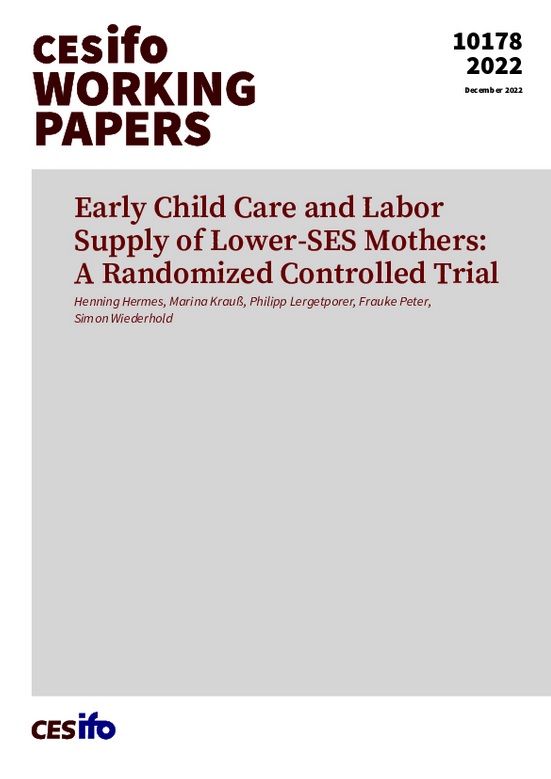
Early Child Care and Labor Supply of Lower-SES Mothers: A Randomized Controlled Trial
in: CESifo Working Paper, Nr. 10178, 2022
Abstract
We present experimental evidence that enabling access to universal early child care for families with lower socioeconomic status (SES) increases maternal labor supply. Our intervention provides families with customized help for child care applications, resulting in a large increase in enrollment among lower-SES families. The treatment increases lower-SES mothers' full-time employment rates by 9 percentage points (+160%), household income by 10%, and mothers' earnings by 22%. The effect on full-time employment is largely driven by increased care hours provided by child care centers and fathers. Overall, the treatment substantially improves intra-household gender equality in terms of child care duties and earnings.


















